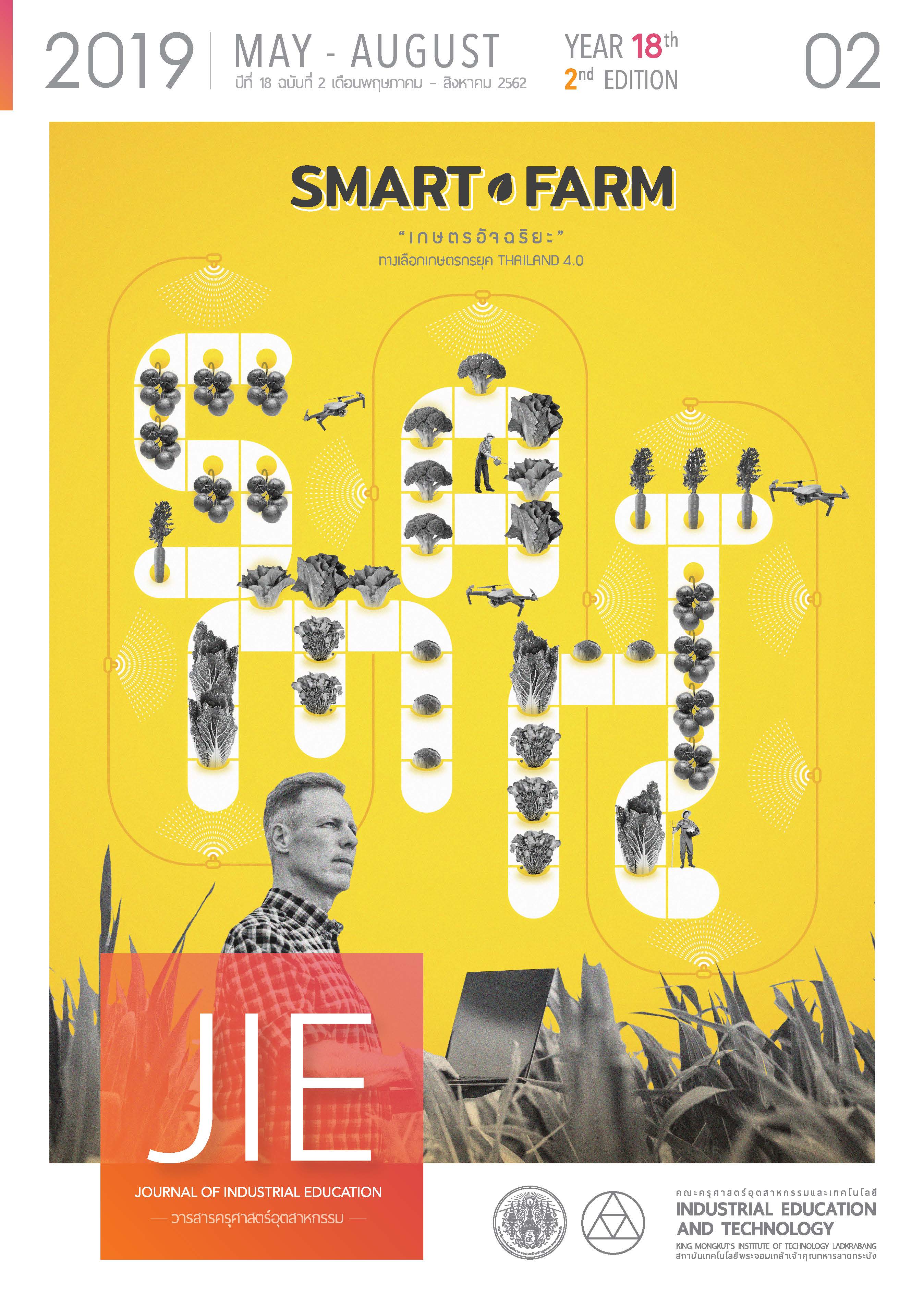การวิเคราะห์องค์ประกอบภาวะผู้นำแบบผู้รับใช้ของข้าราชการครูสังกัดสำนักงานเขตพื้นที่การศึกษามัธยมศึกษา เขต 3 จังหวัดนนทบุรี
คำสำคัญ:
ภาวะผู้นำแบบผู้รับใช้, ข้าราชการครู, โรงเรียนมัธยมศึกษาบทคัดย่อ
การวิจัยเชิงสำรวจนี้มีวัตถุประสงค์เพื่อ 1) ค้นหาองค์ประกอบภาวะผู้นำแบบผู้รับใช้ของข้าราชการครู 2) ศึกษาระดับภาวะผู้นำแบบผู้รับใช้ของข้าราชการครู 3) เปรียบเทียบภาวะผู้นำแบบผู้รับใช้ของข้าราชการครู จำแนกตามขนาดโรงเรียน และ 4) ศึกษาแนวทางการพัฒนาภาวะผู้นำแบบผู้รับใช้ของข้าราชการครู กลุ่มตัวอย่างเป็นข้าราชการครู 500 คน สังกัดสำนักงานเขตพื้นที่การศึกษามัธยมศึกษา เขต 3 จังหวัดนนทบุรี โดยการสุ่มแบบใช้หลักความน่าจะเป็นแบบแบ่งชั้นภูมิเป็นขนาดโรงเรียนและผู้บริหารสถานศึกษา 8 คน เครื่องมือวิจัยเป็นแบบสอบถามชนิดมาตราส่วนประมาณค่าของลิเคิร์ท มีค่าความเชื่อมั่นเท่ากับ 0.968 และแบบสัมภาษณ์ สถิติที่ใช้เป็นค่าเฉลี่ย ส่วนเบี่ยงเบนมาตรฐาน การวิเคราะห์ความแปรปรวน การวิเคราะห์องค์ประกอบเชิงสำรวจด้วยวิธีการสกัดองค์ประกอบหลัก “PCA”ที่ระดับ 0.05 และการวิเคราะห์เนื้อหา ผลการวิจัยพบว่า 1) องค์ประกอบภาวะผู้นำแบบผู้รับใช้ของข้าราชการครู 6 องค์ประกอบ ได้แก่ ด้านการสร้างวิสัยทัศน์ร่วมกัน ด้านการเยียวยาและพัฒนาคุณภาพจิตใจ ด้านการฟังอย่างเปิดกว้าง ด้านการอุทิศตนเพื่อส่วนรวม ด้านการสร้างชุมชน และด้านความรับผิดชอบ 2) ภาวะผู้นำแบบผู้รับใช้ของข้าราชการครู โดยภาพรวมอยู่ในระดับมากที่สุด ได้แก่ ด้านการฟังอย่างเปิดกว้าง ด้านความรับผิดชอบ ด้านการเยียวยาและพัฒนาคุณภาพจิตใจ ด้านการสร้างชุมชน ด้านการอุทิศตนเพื่อส่วนรวม และการสร้างวิสัยทัศน์ร่วมกัน 3) ข้าราชการครูในโรงเรียนขนาดต่างกันมีความคิดเห็นเกี่ยวกับภาวะผู้นำแบบผู้รับใช้ โดยภาพรวมและรายด้านทุกด้านไม่แตกต่างกัน และ 4) แนวทางการพัฒนาภาวะผู้นำแบบผู้รับใช้ของข้าราชการครู คือนโยบายการสร้างชุมชนการเรียนรู้ทางวิชาชีพและนโยบายการสร้างเครือข่ายครูมืออาชีพ
เอกสารอ้างอิง
Ministry of Education. 2010. Planning of National Education 2002-2016. Retrived August 24 2018, from http://www.sufficiencyeco
Office of the Education Council. 2007. Research report the competencies of teacher and guideline of teacher development through the social transformation. Bangkok:ONEC.Ministry of Education.
Office of the Education Council. 2012. Educational Management Guideline of The school As A Juristic Person Under The Educational Service Area of The Office of Basic Education: Bangkok: National Buddhism Publishing.
Kriangkrai Yingyong. 2016.The Servant Leadership of administrator of Catholic schools under Nakhon Ratchasima Diocese. Journal of Education Burapha University, 27, (145.) p.56-71.
Greenleaf.2003.The servant leader within: A transformativepath.New York: Paulist Press.
The Secondary Educational Service Area 3.2018. Basic Data of School Under The Secondary Educational Service Area 3. Retrived 1st August 2018, from https://data.bopp-obec.info/emis/school.php?Area_CODE=101703.
Spears, L.C. 1994. Reflections on Robert K. greenleaf and servant-leadership. Leadership & Organization Development Journal. 17 (7), p. 33-35.
Fan.2001. Structual education modeling: Present and future. Lincolnwool IL: Scientific Software International al.
Laub,J.A.2001.Development of the Organizational Leadership Assessment Instrument.Doctor of Education Dissertation in Education, Florida AtlanticUniversity.
Black.2007. correlational analysis of servant leadership and school climate. Ed.D. dissertation, University of Phoenix, United States Publication No. AAT 3309254. University of Phoenix: Arizona. Retrieved.
Pichawee Mekayai. ( 2007). The development of servant leadership training curriculum for student leaders of Kasetsart University.Master’s Thesis , Kasetsart University.
Arun Promchan. (2012). Develop a Model of Servant Leadership For Educational Service Administrators . Doctoral Dissertation, Sripathum University.
Greenleaf. (2002). Teacher as servant. In H.Beazley, J. Beggs, & L. C. Spear The servant leader within: A transformative path s. (10th). New York: Paulist Press.
Daft.2005. The Leadership Experience. Mason, OH: Thomson Learning.
Siriwan Chantarasamee.2015. The development of Training Curriculum to Servant Leadership for Private School. Doctoral Dissertation, Burapha University.
Mattana Nithananon.2014. Relationships between Servant Leadership And The Job Performance of Teachers In Charge of The World Morality Revival Project. Master’s Thesis, Kasetsart University.
Nutchakorn Thehopakarn. 2009. Relationships Between Servant Leadrship of Head Nurses,Constructive Organizational Culture And Effectiveness of Patient Units As Perceived By Professional Nurses, Regional Hospitals Under The Jurisdiction of Ministry of Public Health,Southern Region. Master’s Thesis, Chulalongkorn University.
Arun Promchan. (2012). Develop a Model of Servant Leadership For Educational Service Administrators . Doctoral Dissertation, Sripathum University.
Spears, L.C. ( 1998). Servant-leadership. Executive Excellence
Dennis . ( 2005). The Leadership Experience. (2nd ed). Mason, OH: Thomson Learning.
National Educational Act. 2000. Royal Gazette.Bangkok: Ministry of Education.
Pinsuda Siridhrungsri. 2013. Report of Research and Development, Model of Basic Education management.Bangkok: Durakit Pundit University.
Laongdao Chaokongjak. 2018. Development for Teacher Leadership Based On Growth Mindset Of Government Teachers At Schools Under The Jurisdiction of The Secondary Educational Service Area Office, Area 3, Nonthaburi Province Master’s Thesis, Panyapiwat Institute of Management).
The Department of Education and Training. 2005. Professional Learning in Effective Schools: The Sevent Principle of Highly Effective Professional Learning. State of Victoria, Melbourne: Department of Education and Training.
Bryk,A,Camburn,E & Louise,KS. 1999. Professional Learning in Chicago Elementary School:Facilitating Factors and Organizational Consequences.Educational Administration Quarterly, 35 supplement(1999),p.751-781
Bulkley, K.E. & Hicks,J. 2005.Managing Community: Professional Community in Charter Schools operated by Educational Management Organization. Educational Admistration Quarterly,Vol.41,(April 2005). P. 306-348.
Mitchell, C. & Sackney, L. 2000. Profound Improvement : Building Capacity for A Learning Community. Lisse, The Netherland: Swets & Zeitlinger.
Anutsara Suwanwong.2015. Management Strategies To Enhance Professional Learning Communities For Teachers In Private Schools.Doctoral Dissertation, Chulalongkorn University.
Thapanut Udomsree.2015. The School Manangement Model To Enhance The Professional Learning Community In Classroom Action Research. Doctoral Dissertation, Chulalongkorn University.
ดาวน์โหลด
เผยแพร่แล้ว
รูปแบบการอ้างอิง
ฉบับ
ประเภทบทความ
สัญญาอนุญาต
"ข้อคิดเห็น เนื้อหา รวมทั้งการใช้ภาษาในบทความถือเป็นความรับผิดชอบของผู้เขียน"



